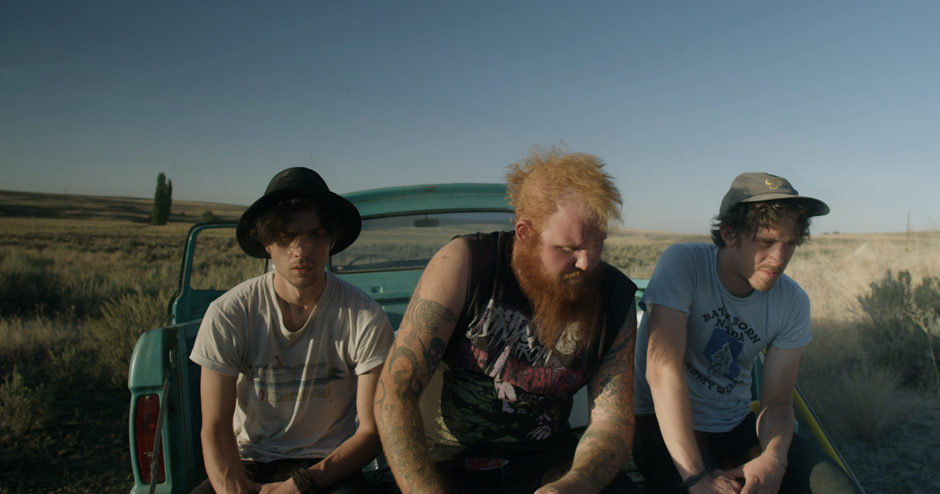Dir. Matias Penachino
With an observational documentary style, Summun Bonum opens with a family watching old video footage of when the parents adopted children from a foreign country. Straight away the mother’s natural son asks her why she loves watching them. Is it their innocence? This question leads into the rest of the film – and ultimately rests at it’s heart. What is innocence?
The film cuts to the lives of the two brothers as we follow them throughout the film. They are living a student lifestyle away from home in a dingy apartment. Dosed with drugs and fueled by alcohol. Smoke infused scenes with visits to the doctors show us they are both living destructive life styles detrimental to their own health. The brothers are both dealing with their own issues and with this they both decide it would be a good idea to go back home and see their family.
The aesthetics improve when they travel further out of the polluted city and Director Matias does this by shooting beautiful rolling shots of the car driving forwards along the roads through daylight and night. This is a great passing of time as the two make their way to Mexico. On the way to their family home they visit a friend; a creative mind who lives for music as well as the rock ‘n’ roll lifestyle. He takes the two brothers to work with him farming cows. There is a theme of nature and beauty vs the industrial and ugly. Matias shoots great beautiful landscapes clashed with brutal scenes such as the shooting of the cow or the brothers throwing up. Matias also shows the idea of pollution, to the world and the body. The guys have been polluting themselves with drugs and junk food and they are going through a cleansing transition.
Matias shows the isolation of the two brothers really well. He manages to keep them distant but tells the story with their surroundings and the people they come into contact with. An unusual technique that Matias puts into use is with dialogue, a lot of the time people are talking out of frame or with their face not showing. It’s quite jarring but has an affect on the brothers as it does to the audience, a feeling of unease and social awkwardness.
When they finally arrive at their family home we are greeted with a wealthy and warm reception. The house is full of innocent children who have a lot of love and care. The parents seem happy to have their two natural borns with them. The difference in life style is not overwhelming but welcomed and refreshing. Its almost a rehabilitation for the two brothers, as they don’t smoke and they eat healthy. They take care of their adopted siblings with natural ease showing love for them. The film leaves you with questions yet an understanding of independence and responsibility.




